13 December
Local Date: Dec 13 2025 |
Local Time: 8:00 am - 9:30 am
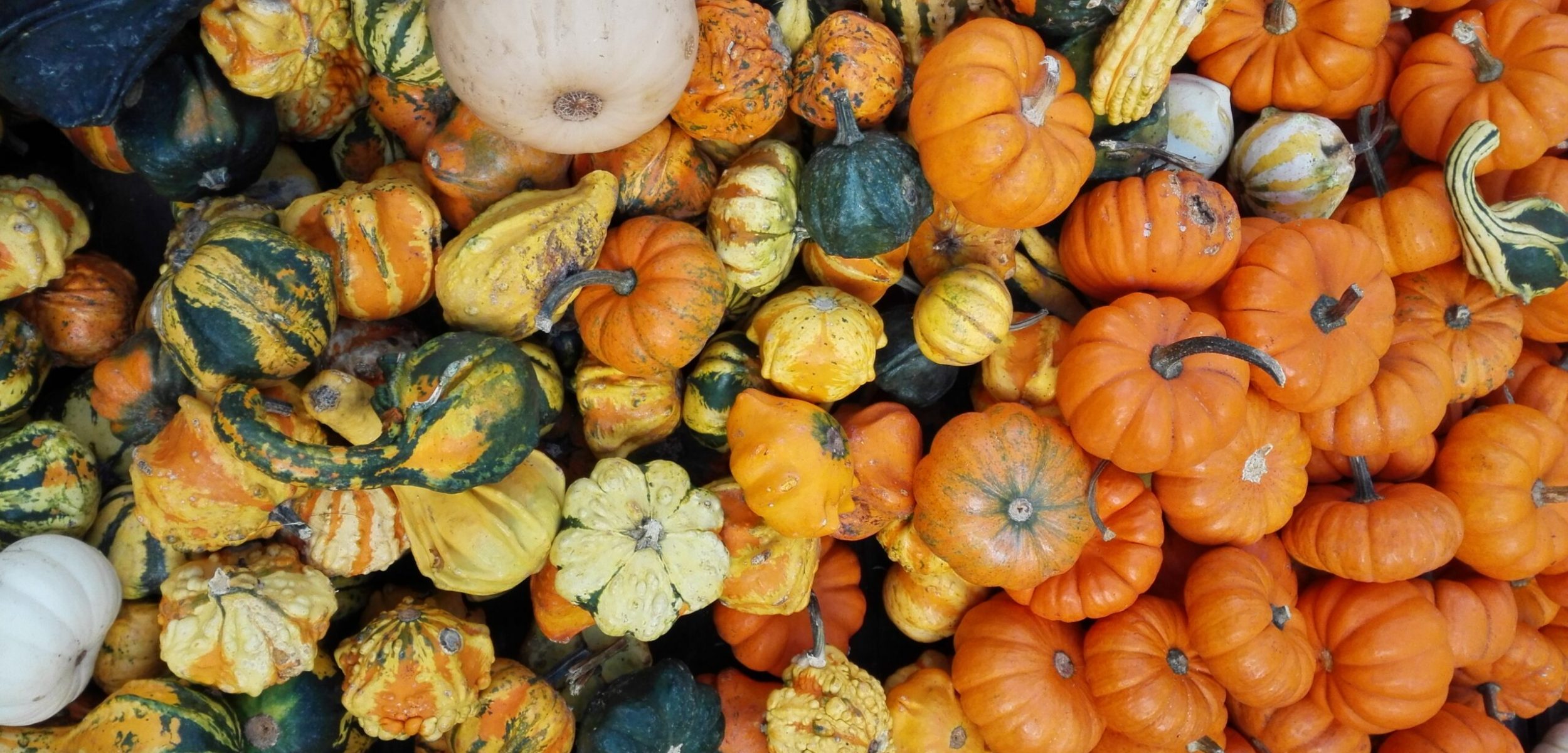

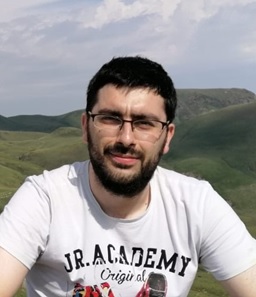
|
Francesc Fusté-Forné holds a PhD in Tourism (University of Girona, Spain) and a PhD in Communication (Ramon Llull University). He is Associate Professor Serra Húnter at the Department of Business, University of Girona. He is undertaking research on culinary and rural heritages from a marketing and travel perspective. Particularly, he focuses on the food tourism phenomenon, making connections among food identities, landscapes, regional development, rural activities, street food, and tourist experiences. He also conducts applied research on the role of gastronomy in relation to mass media and as a driver of social changes. |
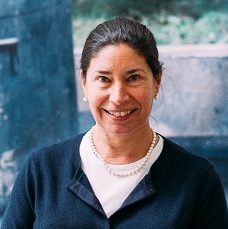
|
Tracy Berno is Associate Dean Postgraduate and Associate Professor at AUT University in Auckland, New Zealand. Her interests include the relationship between agriculture, tourism and cuisine, sustainable food systems and food politics. She has researched and published widely on agriculture, culture, cuisine and tourism development in the South Pacific and Asia, and has co-authored three international award-winning books in this area. Tracy is the founder and Project Manager of Pacific Food Lab-Aotearoa (PFL-A), which is a partner organisation to Pacific Food Lab-New Caledonia. This partnership sees Tracy working with chef and restauranteur Gaby Levionnois on a range of food system projects |
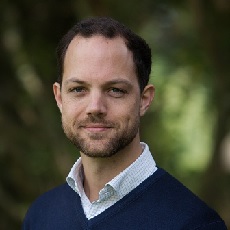
|
Gabriel C. M. Laeis has a keen interest in gastronomy, food and sustainability ever since he commenced his career as a cook in a small Italian restaurant. He moved on to work for a number of restaurants, international hotel chains and hospitality management consultancies in Germany, China and Australia. He holds a BA in Hotel Management and an MSc in Organic Agriculture and Food Systems. For his PhD in Development Studies at Massey University, New Zealand, Gabriel looked at the role of cuisine in shaping tourism-agriculture linkages in Fiji, finding that Western-driven mass tourism has a tendency to colonize the foodscape and alienate local cuisines. Gabriel was the co-organiser of the first conference on tourism and the SDGs in Auckland. He continues to enjoy scrutinising the interface of smallholder agriculture, tourism and hotel management in the Global South with participatory methodologies and publishes in leading hospitality journals and textbooks. He holds a Professorship in Hospitality Management at IU International University, Germany, where he recently co-hosted three online 24 hr hackathons on sustainable hospitality management across various European universities. |
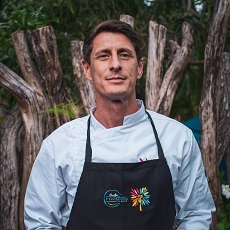
|
Gaby Levionnois is a French-Tahitian chef, restauranteur and social entrepreneur in Noumea, New Caledonia. Along with managing his restaurant, Au P’tit Café, Gaby is the founder and Project Manager of Pacific Food Lab – New Caledonia, an NGO which focuses on developing sustainable and resilient culinary cultures in the South Pacific region. PFL-NC works with a broad range of food industry stakeholders (including tourism) to create and support the idea that resilient food is at the heart of addressing economic, societal and environmental challenges. PFL-NC partners with Pacific Food Lab-Aotearoa, which sees Gaby working with academic Tracy Berno on a range of food system projects |
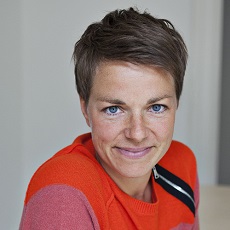
|
Carina Ren is Associate Professor at Aalborg University, Denmark and head of AAU Arctic. In her recent research on tourism development in Greenland and Nordic Arctic, Ren explores connections between tourism and other fields of the social through cultural innovation, entrepreneurship, knowledge collaboration, digital capacity building and value co-creation. Ren has published in leading Arctic and tourism journals and co-edited several special issues and books, such as Co-Creating Tourism Research. Towards collaborative ways of knowing (2017, Routledge) and Collaborative Research Methods in the Arctic. Experiences from Greenland (2021, Routledge). |
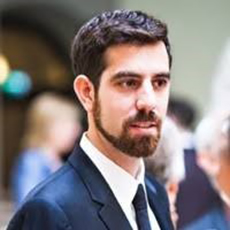
|
Mark Notaras is Co-Founder and Co-Director of Agora Food Studio, a gastronomic social enterprise in Dili, Timor-Leste. Since 2016 Mark and his team have pioneered a globally unique and ethical restaurant model that innovates with good, clean and fair food, for workers, producers, eaters and the environment. He employs and mentors Timorese youths to become entrepreneurs and leaders in food, coffee and tourism. Mark and his team measure their collective impact to address the SDGs via a Food Impact Dashboard which they plan to expand globally. In 2020, Mark is providing online coaching for tourism businesses in Timor-Leste, supported by USAID. Mark has 18 years’ experience across Australia and the Asia-Pacific working for the Australian Government, International Organisations and non-government organisations. Mark has worked for GIZ, the UN University, FAO, DFAT, Oxfam, The Asia Foundation and USAID. He has pioneered unique facilitation and coaching approaches for social enterprises, rural communities and youths. Mark is a Rotary Peacebuilding Fellow (2013) and a Mediators Beyond Borders “Akin Olawore Peace Award Scholarship” holder. Mark holds a Bachelor of Commerce (Honours) from the University of Sydney and a Masters in International Affairs from the Australian National University and the Peace Research Institute of Oslo. |
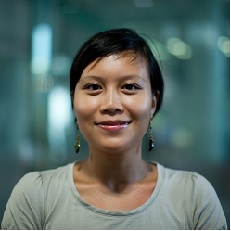
|
Alva K. Lim is Co-Founder and Director of Agora Food Studio by the Timor-Leste Food Lab. Alva and her team celebrate indigenous food traditions and the environmental imperative of eating locally produced, seasonal food. Their ʻfood studio – food lab’ connects local food champions, storytellers, academics, chefs, baristas and technologists to achieve the Sustainable Development Goals. Alva enjoys meeting people with unconventional points of view, exploring social and microbiome connections through food and stories, and finding different ways of thinking that can produce innovative solutions to sustainability issues. Alva is a practitioner in food systems transformation and business mentorship. She is a Monbukugakusho (MEXT) Scholar with a Masters degree in Public Policy and Bachelors of Economics (Honours). She has worked for various community and international organisations, the Australian Government Treasury Department, and United Nations University. |
 | Francesc Fusté-Forné Moderator |
 | Tracy Berno Moderator |
 | Gabriel C M Laeis Panelist |
 | Gaby Levionnois Panelist |
 | Carina Ren Panelist |
 | Mark Notaras Panelist joint |
 | Alva K. Lim Panelist joint |




